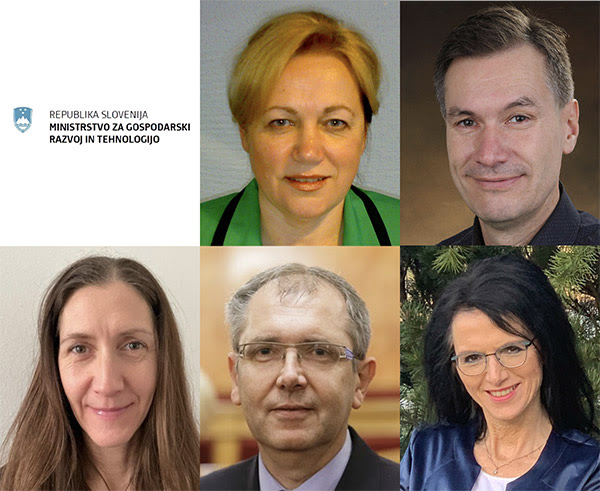From SocialB: https://socialb-erasmus.eu
Our SocialB Pilot Programme is almost ready…
The Irish Social B partners will shortly be rolling out an exciting opportunity for Social Enterprises, students and educators to avail of newly developed training materials which we’ve been working on, in collaboration with our partners in Slovenia, Greece and Italy.
The training modules have been developed to address knowledge and skills gaps identified by Social Enterprises themselves and by trainers and tutors who deliver tailored training to SEs.
Growth and sustainability are the key themes, and each training module has a strong practical focus which aims to provide participants with practical insight into the day-to-day challenges and operations of social enterprises.
The training pilot will run from late April until early July and will be delivered through blended learning which will include a mix of tutor-led online sessions, in-person workshops, practical work based learning, and self-learning.
Delivered by experienced tutors with lots of expertise in the field of training delivery in the field of social enterprise, the training pilot will benefit staff and Board members of SEs, as well as HEI & VET sector staff, Advisors to Social Enterprises and all those who work within, or to support, the social economy sector.
We will be in contact with you again over the next few weeks with the full training schedule for the pilot, and we hope you will be able to participate in some of the sessions.
Slovenian PAG members talk about the future of Social Entrepreneurship in Slovenia
Slovenian Project Advisory Group (PAG) is very active in the SocialB project and here are some of their thoughts about the future of Social Entrepreneurship in Slovenia.

Mrs. Urška Bitenc, Ministry of Economic Development and Technology, Regional Development Directorate, Division for social entrepreneurship, cooperatives and economic democracy
“Social economy is extremely important for development of social innovation and inclusive jobs. In Slovenia we need support environment for SE by good policies, financial resources and support.”
Mrs. Zdenka Marija Kovač, M.Sc., lecturer, independent researcher
“We need to setup a development and research units for social entrepreneurships, unify institutional support and provide system funding. SE is a key tool for developing social innovation in the future.”
Mr. Miro Mihec, director of Etika d.o.o., co-founder of several social enterprises
“We need to build ethic, socially responsible and social economy for the better future through raising awareness about the benefits of social economy and how we are dependent on each other.”
Mrs. Tatjana Rakar, Ph.D., professor at the Faculty of Social Sciences, University of Ljubljana
“We need to adopt development strategy for SE development and systematic implementation on all levels. Another key point is to implement systematic measuring of social impact.”
Mr. Andrej Udovč, Ph.D., professor at the Biotechnical Faculty, University of Ljubljana
“SE is one of the most promising types of entrepreneurship. More education and awareness is needed as there is still a lot of misunderstanding about social entrepreneurship and social economy in Slovenia.”
Mrs. Marinka Vovk, Ph.D., first social enterprise in Slovenia, Reuse Centre
“In Slovenia we need system support for SE. We need to present to the policy makers direct and indirect impact SE has on the quality of life for the society.”
OECD report on the state of Social Entrepreneurship in Slovenia

Last year, the Slovenian Ministry of Economic Development and Technology collaborated with the OECD on a study analysing the state of social entrepreneurship in Slovenia. The findings of the report were presented at an online event attended by representatives of the OECD, the Ministry, the University of Ljubljana and other stakeholders.
The panellists agreed that Slovenia is on the right track to take the social economy to the next level. Strengthening cooperation between all stakeholders is key, as this is the only way to develop the entire social economy ecosystem. We need to strengthen the support environment, facilitate knowledge acquisition and ensure wider promotion of social entrepreneurship in Slovenia. The full report is available in English: https://oe.cd/il/se-slovenia.
Measuring social impact is also very important. A national methodology for measuring social impacts is being developed and it will lay the foundations for systematic monitoring and measurement of social impact. Measuring social impact is a complex task that not many organizations implement. There is a lack of a standardised and uniform measurement methodology that would allow for easy measurement and reporting and would not impose an excessive administrative burden on organisations. The aim of developing a national methodology is to define in more detail the standards, criteria and indicators for measuring and monitoring the social impact generated by Slovenian social enterprises and to develop an applied model. The model will allow for self-assessment of social impact for reporting purposes of Slovenian social enterprises.
Social B – a brief refresher
You are receiving this e-mail, because you subscribed to a SocialB newsletter.
Social B is an Erasmus+ Knowledge Alliance project between 8 partners from the social enterprise, training and Higher Education sectors in 4 countries – Ireland, Greece, Italy and Slovenia.
The strategic objective of the project is to develop a common suite of training materials, available to a wide range of stakeholders, through the SocialB eLearning Repository.
Learning materials will be presented in the framework of blended learning materials in 16 – 24 Learning Units, and will be designed to address identified skills gaps and training needs in key areas critical for the development, sustainability and expansion of the Social Enterprise sector.
The project will run until December 2022.
More about the project: https://socialb-erasmus.eu/

SocialB is a Knowledge Alliance Project (612579-EPP-1-2019-1-IE-
The information and views set out in this website are those of the authors and do not necessarily reflect the official opinion of the European Union. Neither the European Union institutions and bodies nor any person acting on their behalf may be held responsible for the use which may be made of the information contained therein.




